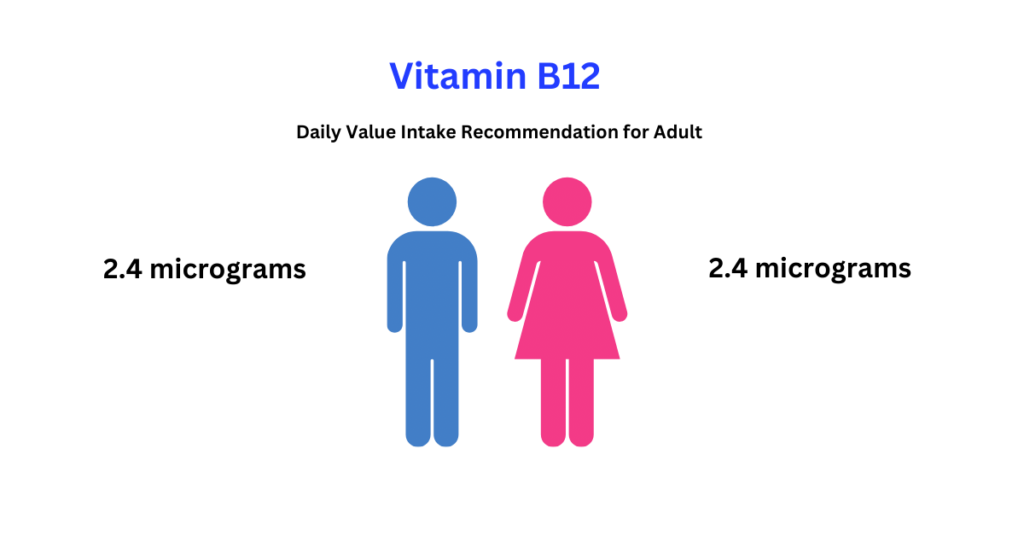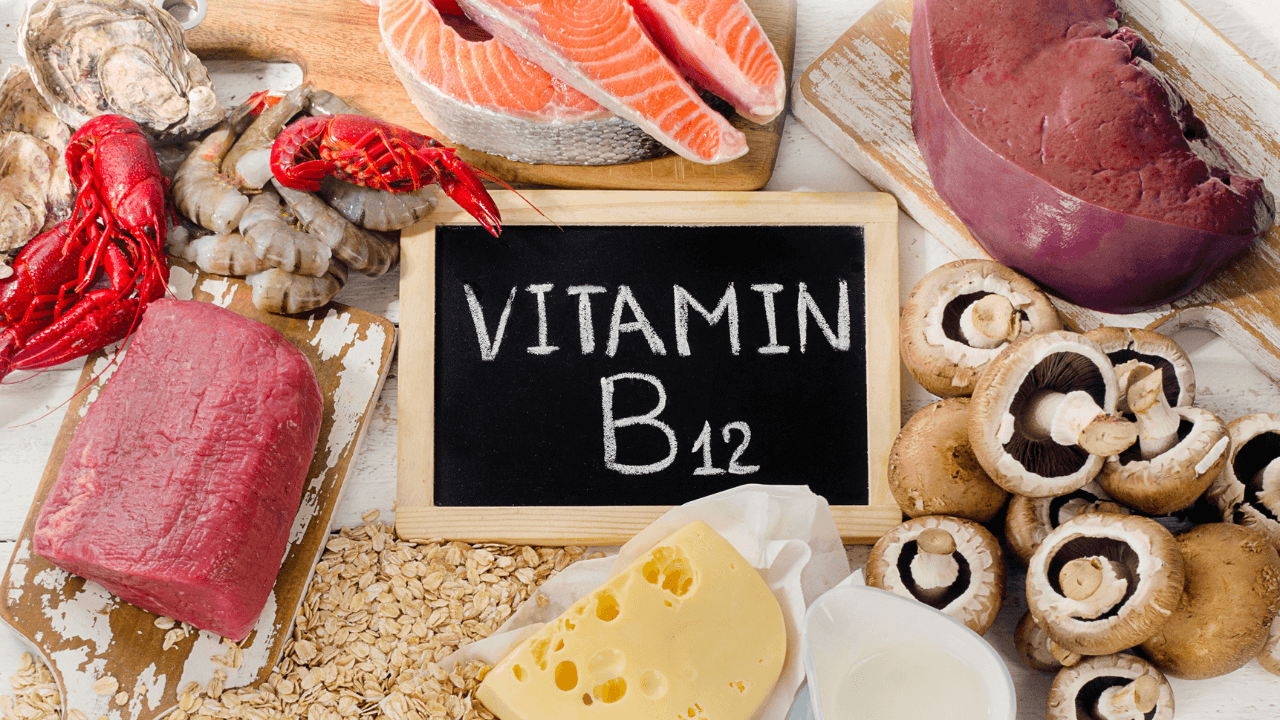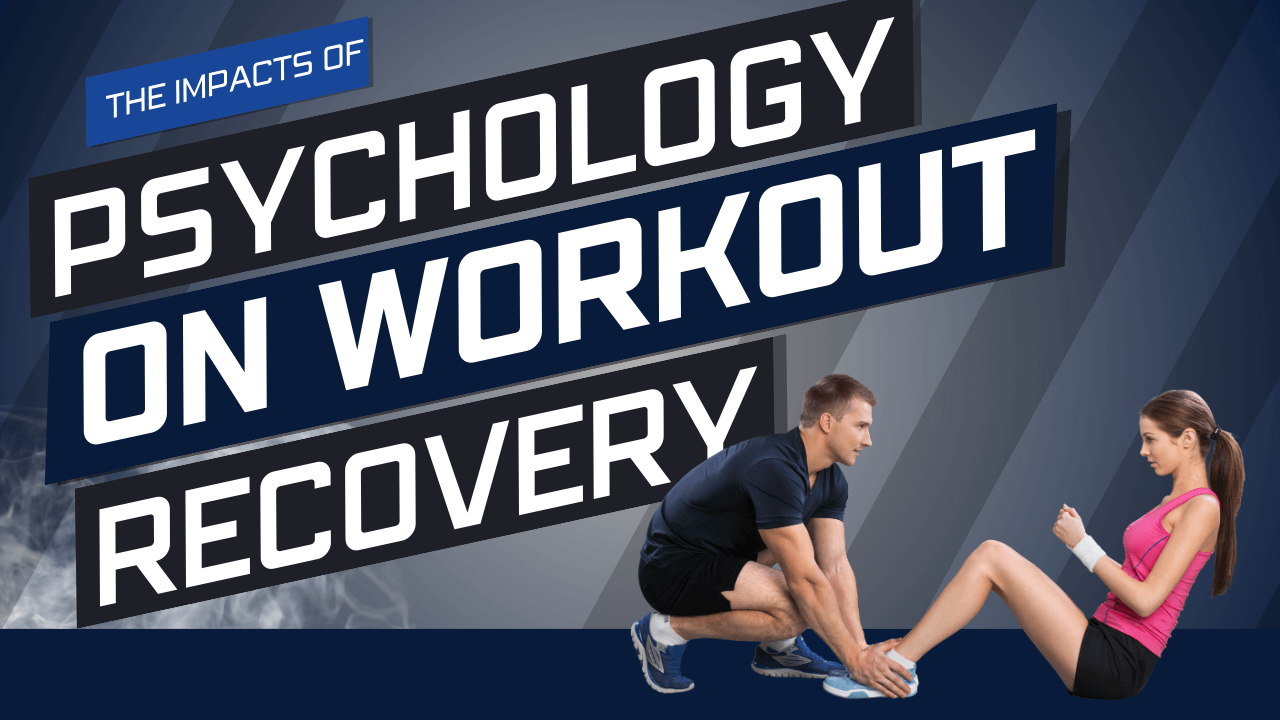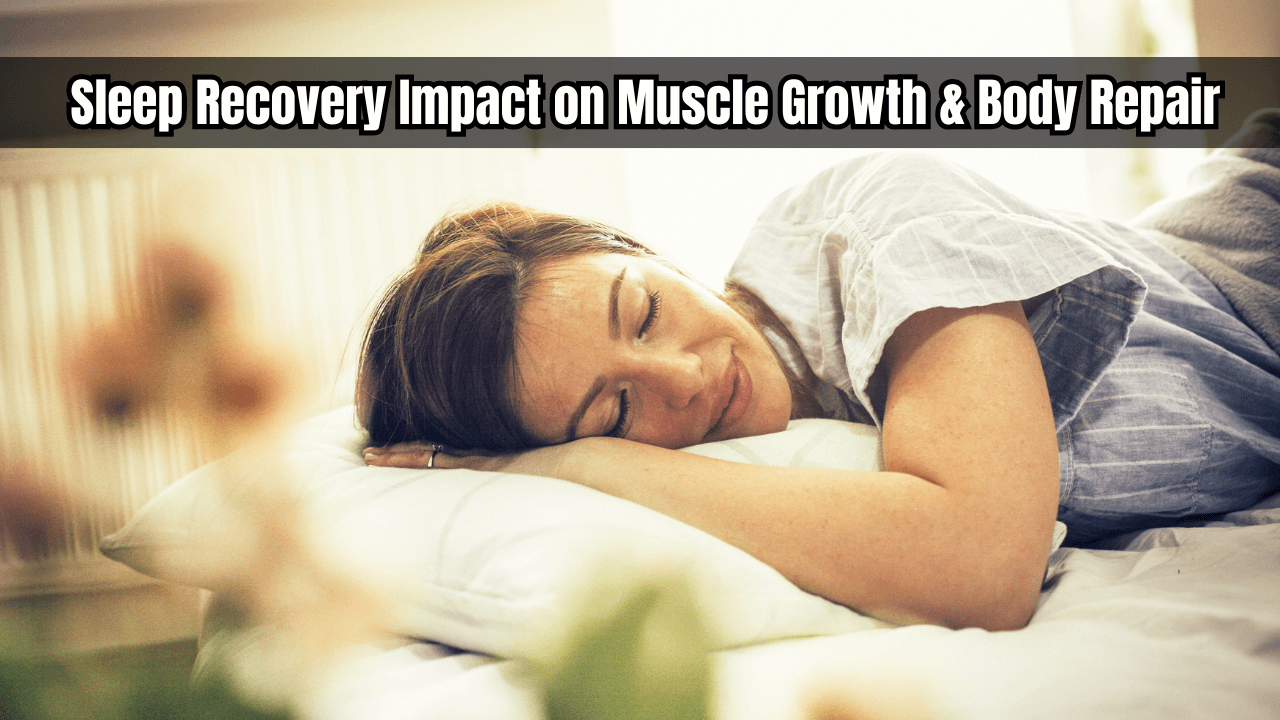Vitamin B12, also known as cobalamin, is a crucial water-soluble vitamin that plays a significant role in various bodily functions. Essential for nerve function, DNA synthesis, and the production of red blood cells, Vitamin B12 is a key player in maintaining overall health. In this article, we’ll delve into the sources of Vitamin B12, its role in preventing deficiencies, and the importance of incorporating B12-rich foods into your diet. Whether you’re a health enthusiast or someone looking to improve your nutritional intake, understanding the role of cobalamin (B12 vitamin) is imperative.
 Food Sources of Vitamin B12
Food Sources of Vitamin B12
To ensure an adequate supply of Vitamin B12, it’s essential to include B12-rich foods in your diet. Vitamin B12 is primarily found in animal-based products, making it a vital nutrient for those following a non-vegetarian diet. Here’s a list of the top 10 high B12 foods with their respective measurements of RDA (Recommended Dietary Allowance):
- Beef liver (3 ounces, cooked): Approximately 70.7 micrograms
- Clams (3 ounces, cooked): Approximately 84.1 micrograms
- Salmon (3 ounces, cooked): Approximately 4.8 micrograms
- Trout (3 ounces, cooked): Approximately 5.4 micrograms
- Tuna (3 ounces, cooked): Approximately 2.5 micrograms
- Fortified breakfast cereals (1 serving): Varies, check nutrition label
- Eggs (1 large): Approximately 0.6 micrograms
- Milk (1 cup): Approximately 1.2 micrograms
- Cheese (1 ounce): Approximately 0.9 micrograms
- Chicken (3 ounces, cooked): Approximately 0.3 micrograms
Vitamin B12 Deficiency: Causes and Symptoms
A B12 deficiency can lead to severe health issues. It is often caused by insufficient dietary intake, certain gastrointestinal disorders, or surgeries affecting B12 absorption. Symptoms of Vitamin B12 deficiency include anemia, fatigue, nerve damage, and cognitive impairments. This deficiency is particularly concerning for vegetarians and vegans, who may lack adequate sources of B12 in their diets.
Supplementation: Bridging the B12 Gap
In cases where individuals struggle to obtain sufficient Vitamin B12 from their diet or face medical conditions requiring higher B12 levels, healthcare professionals may recommend B12 supplementation or injections. These can be crucial for maintaining optimal health and preventing the adverse effects of a deficiency.
Interactions and Absorption of Vitamin B12
The absorption of Vitamin B12 can be hindered by conditions like pernicious anemia, which impairs the body’s ability to absorb this vitamin from food. Furthermore, medications such as proton pump inhibitors and certain diabetes drugs can interfere with B12 absorption. Therefore, discussing potential interactions with healthcare providers is vital, especially for those on relevant medications.
Conclusion: Embracing the Power of Vitamin B12
In conclusion, understanding and incorporating cobalamin (B12 vitamin) into your diet is crucial for maintaining good health. Whether through dietary sources or supplements, ensuring you receive adequate amounts of this vital nutrient can significantly impact your overall well-being. Remember, a balanced diet rich in B12 foods is your best defense against B12 deficiency, fostering a healthier and more vibrant life.







